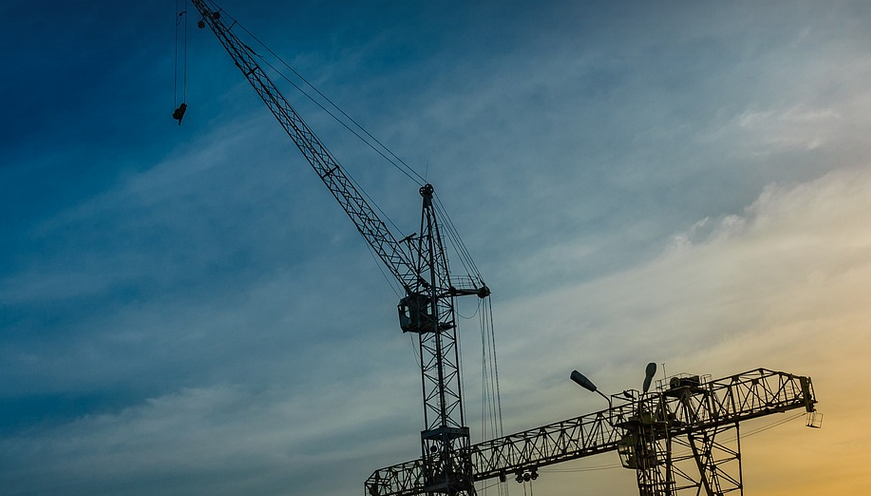Recycling Made Easy in Westfield, New Jersey
As a resident of Westfield, New Jersey, you’re probably wondering how to make your recycling efforts as efficient and effective as possible. With so many options and changing regulations, it can be confusing to navigate the world of waste management. But fear not! This guide will illuminate your path towards becoming an eco-conscious champion in Westfield. Let’s dive into the specifics of your city’s recycling schedule.
Westfield, NJ places a strong emphasis on responsible environmental stewardship and actively encourages its residents to embrace a sustainable lifestyle. Recycling is not just about keeping our planet clean; it’s about contributing to a healthier future for generations to come. Through proper waste sorting and disposal, we can significantly reduce the amount of waste that ends up in landfills. And with Westfield’s robust recycling program, making this commitment is easier than ever.
The heart of the Westfield NJ Recycling schedule lies in understanding what materials are accepted at curbside and the specific rules associated with each category. So let’s break them down step-by-step.
Understanding the Basics: Your Curbside Recycling Journey
First, take a moment to familiarize yourself with your recycling bins. These bins are typically color-coded, offering clear visual cues for residents. In most cases, you’ll find: * **Green Bins**: These bins are dedicated for recyclables, like paper, cardboard, plastic containers, and glass. Each household is usually assigned a specific bin size to accommodate the necessary waste capacity.
The second crucial element in understanding your recycling schedule lies in knowing what materials can be included in your green bins. This is where we delve into the specifics of acceptable items:
Paper: The Paper Recycling Champion
Paper, a versatile and essential material, plays a significant role in our daily lives. From newspapers and magazines to cardboard boxes and office papers, these recyclable materials can make a substantial impact on reducing landfill waste.
Here’s the lowdown on paper recycling:
* **Unbleached Paper Products:** This category encompasses all materials made from uncoated wood pulp, such as newspapers, magazines, cardboard boxes, cereal boxes, and junk mail. These items are generally made of plain or lightweight paper that doesn’t require any special treatment before being recycled.
* **Recyclable Office Paper:** If you think about the countless sheets of paper we use every day in offices, schools, and libraries, their recycling is essential. Ensure all office papers, including envelopes, are properly sorted into your designated paper recycling bin.
Cardboard: A Recycling Powerhouse
Cardboard boxes, a ubiquitous part of our daily lives, should be recycled efficiently to minimize environmental impact. Cardboard, especially when flattened and compacted, plays a vital role in the recycling process. Here’s why:
– **Resource for Manufacturing:** Reusing cardboard is essential for manufacturers because it allows them to create new products like new boxes, packaging, and even building materials.
– **Reduced Landfill Waste:** Recycling cardboard helps reduce the amount of waste sent to landfills. It’s a simple step that makes a big difference in our effort to conserve resources and protect the environment.
Plastic: Your Guide to the Right Bins
While plastic can be an incredibly versatile material, its misuse has created significant environmental challenges. As individuals and communities work to minimize their waste footprint, the key is responsible disposal of plastics.
Here’s what you need to know about recycling plastics:
* **Types of Plastic:** Plastics are often categorized based on different types: PET (polyethylene terephthalate), HDPE (high-density polyethylene), PVC (polyvinyl chloride), and LDPE (low-density polyethylene).
For instance, PET bottles – the kind you find in soda and water – should be placed into your dedicated plastic recycling bin. Similarly, HDPE containers used for everyday household items like milk jugs, detergent bottles, and shampoo bottles should also be recycled.
However, it’s crucial to note that certain types of plastic are not recyclable in Westfield. It’s always a good idea to check with the local recycling center or your waste management provider for the exact guidelines on what material belongs in which bin.
Glass: A Vital Recyclable Material
Glass, often overlooked in the realm of recycling, is actually one of the most recyclable materials available. For example, glass bottles from juice, soda, and water are a prime example.
Here’s why it’s important to recycle glass:
* **Reusing for New Products:** Glass can be melted down and used to create new products like building materials, tiles, or even art. It is an incredible recycling solution that minimizes waste and saves valuable resources.
**Proper Sorting for Efficient Recycling**
Finally, before placing any recyclables in your curbside bins, remember the importance of sorting properly! This ensures that materials destined for recycling get processed correctly. So always check the specific guidelines provided by your municipality or waste management provider to ensure you’re following the latest regulations.
Beyond Curbside: Expanding Your Recycling Horizons
The journey towards a more sustainable lifestyle in Westfield extends beyond curbside recycling. Here are some additional avenues for maximizing your impact on the environment:
* **E-Waste Disposal:** Electronic devices such as computers, smartphones, and tablets often contain hazardous materials that need to be disposed of responsibly. For safe and responsible e-waste disposal, search for local e-waste recycling programs in your area. These programs provide a convenient and environmentally sound method for discarding these electronic items.
* **Drop-Off Recycling Centers:** Many municipalities have designated drop-off points for specific recyclables. This allows you to recycle materials that may not be collected on the curb or participate in special programs like book, clothing, and electronics recycling. Check with your city’s website or local government offices for updated information about these drop-off centers and their locations.
Recycling is a crucial step towards ensuring a healthier planet for our generations to come. By understanding the basics of Westfield’s recycling schedule, you can make informed choices that benefit both your environment and your community.
So let’s join hands and contribute to a greener future – one recyclable item at a time!
